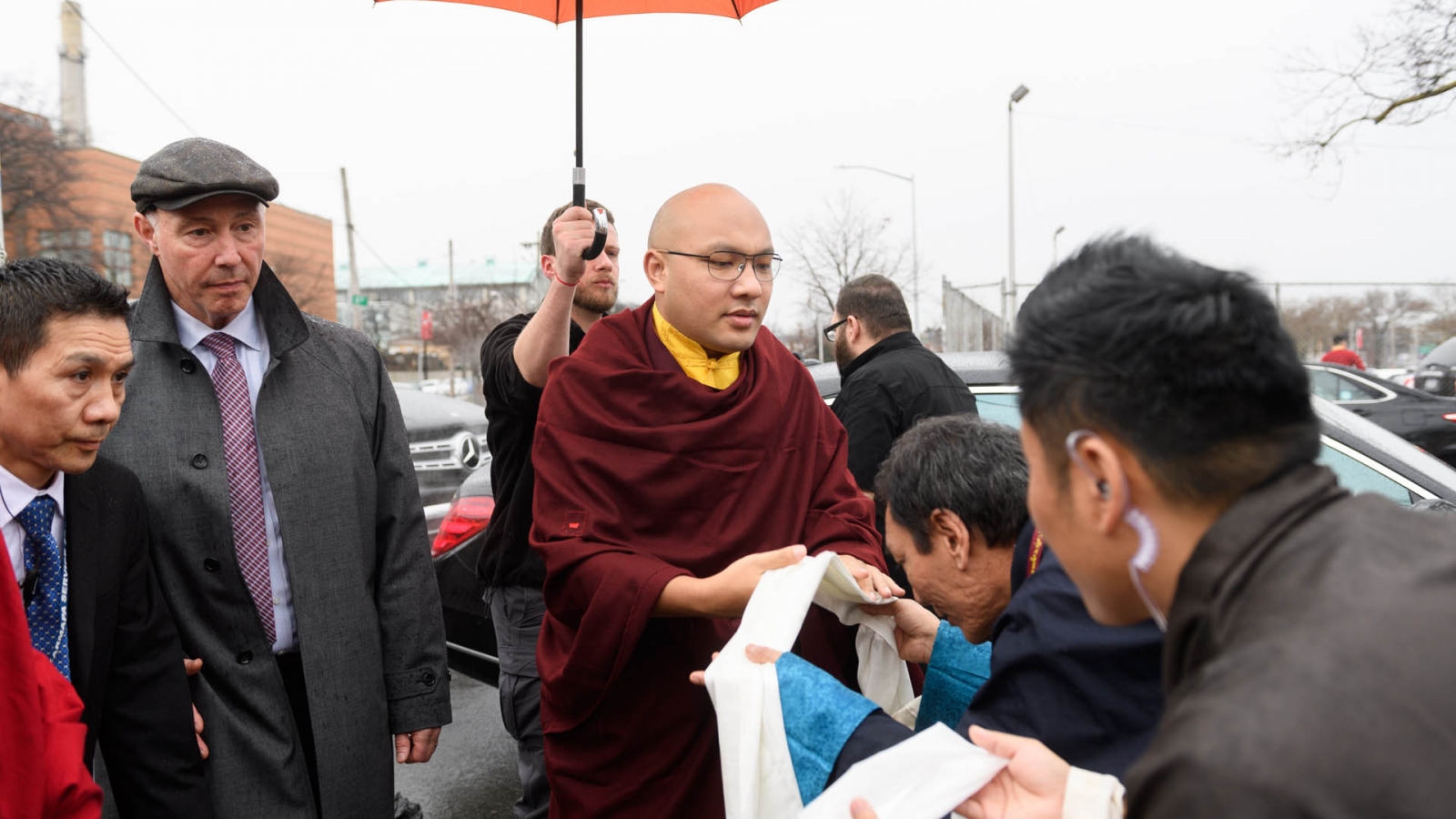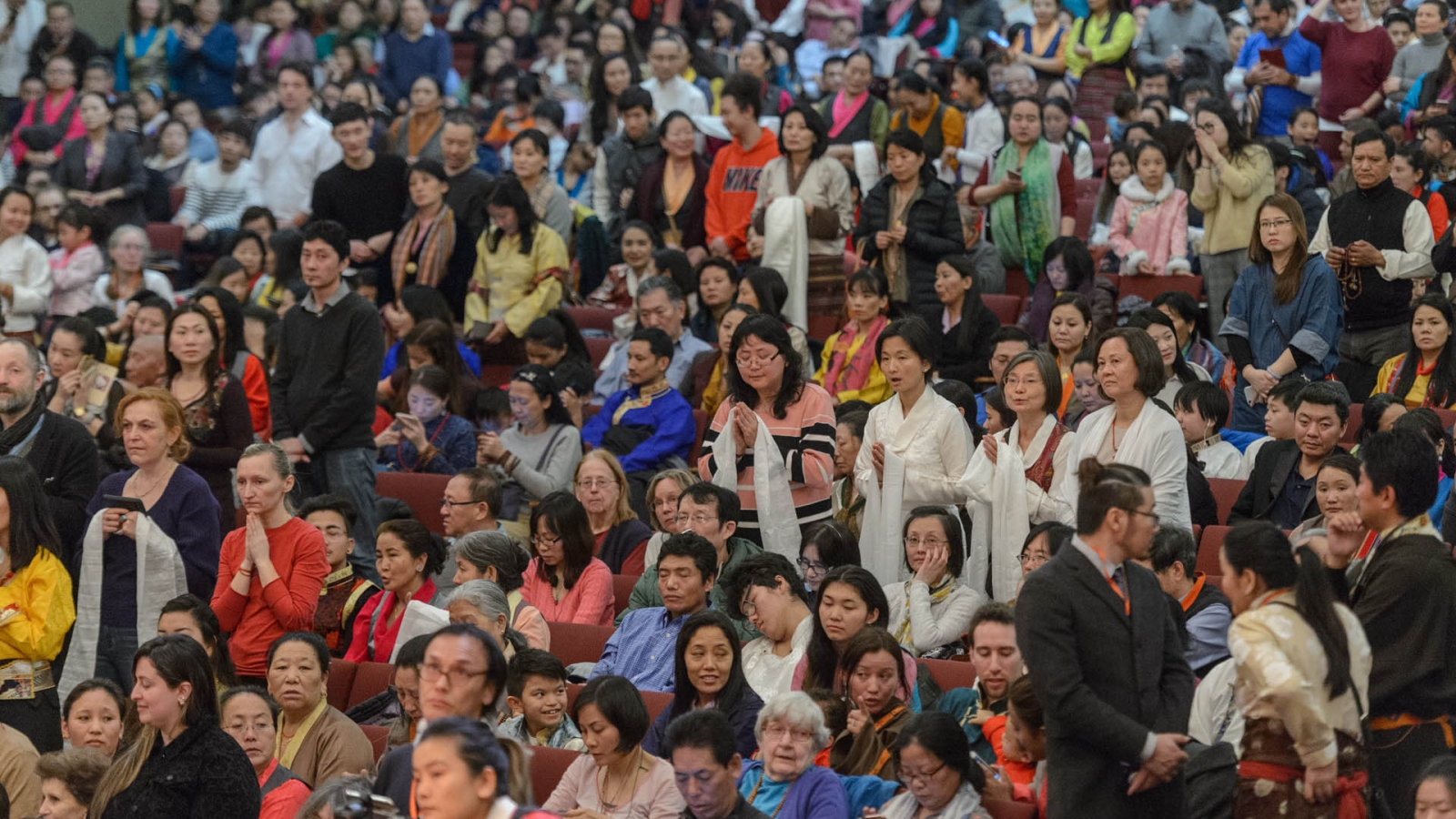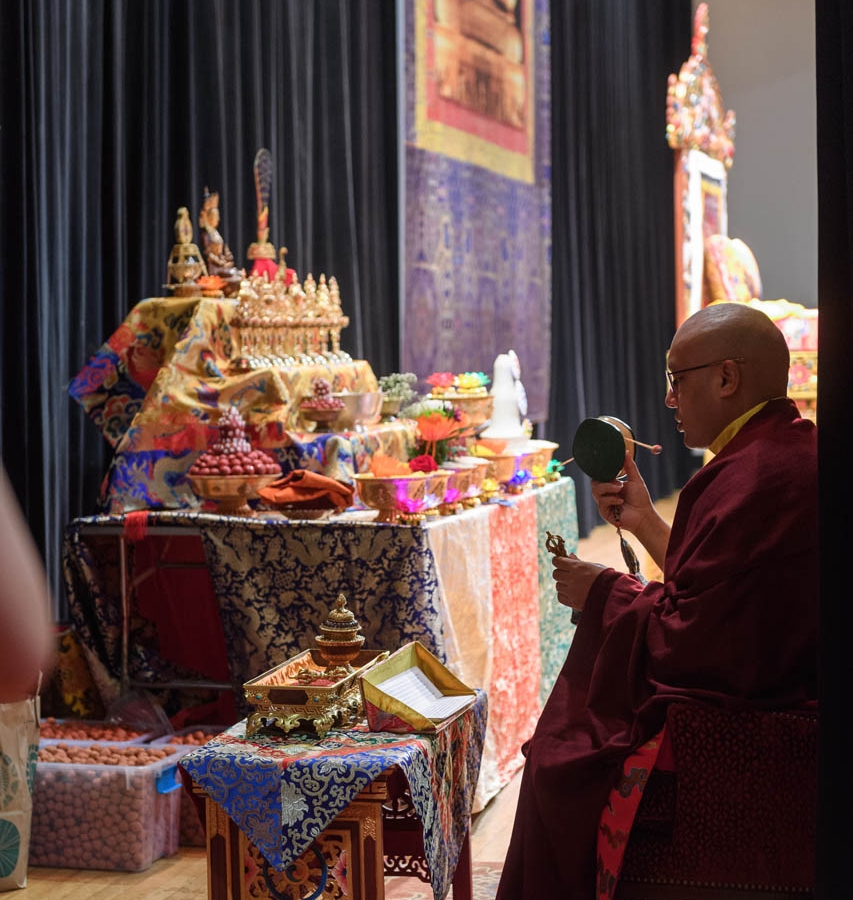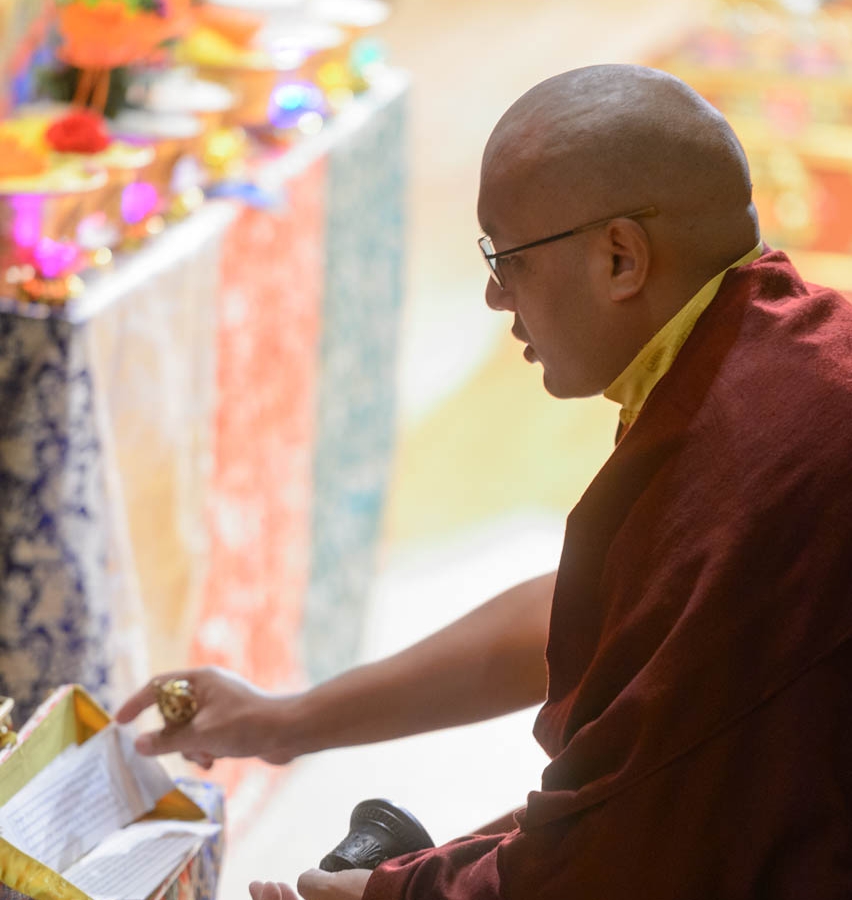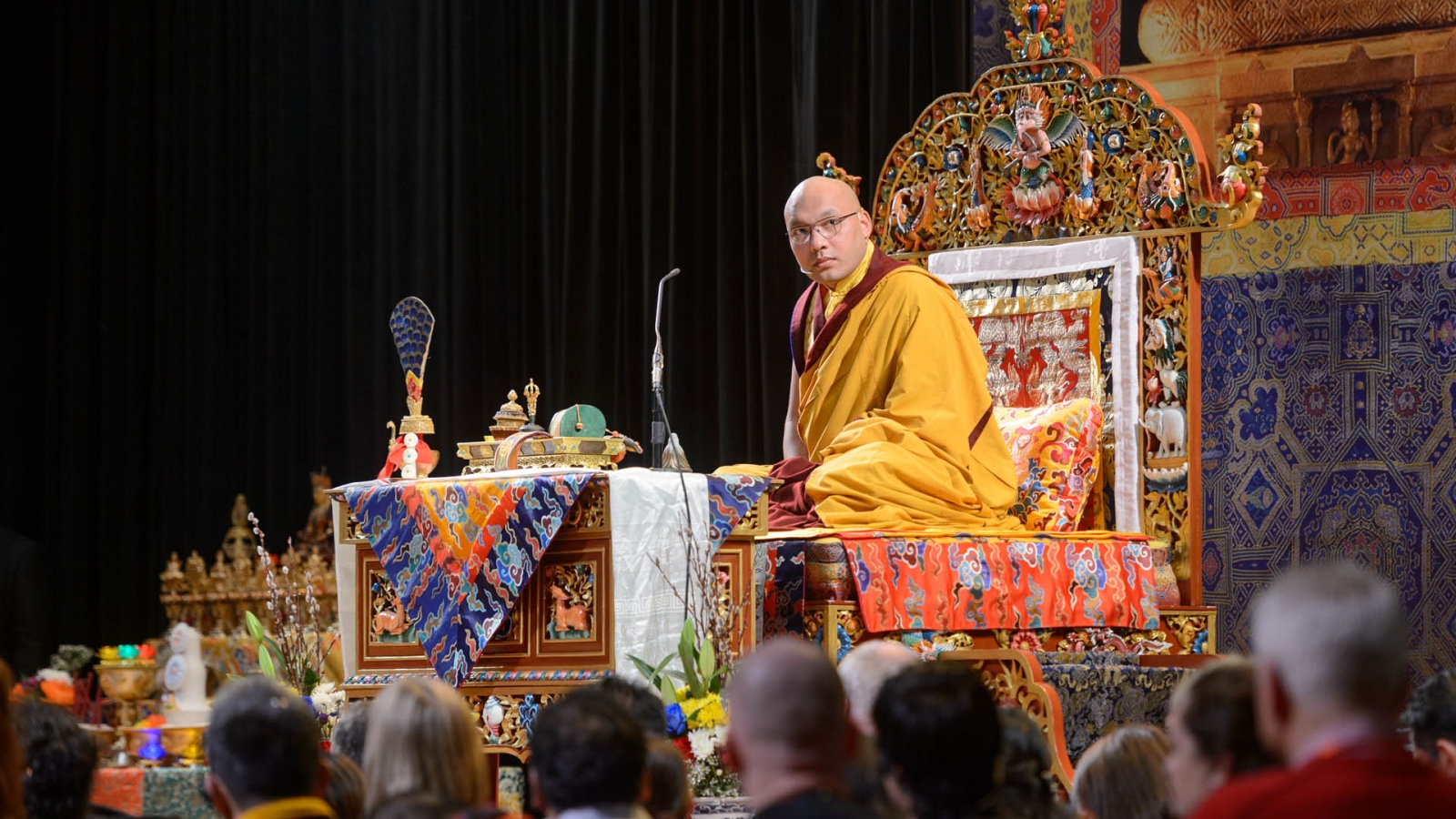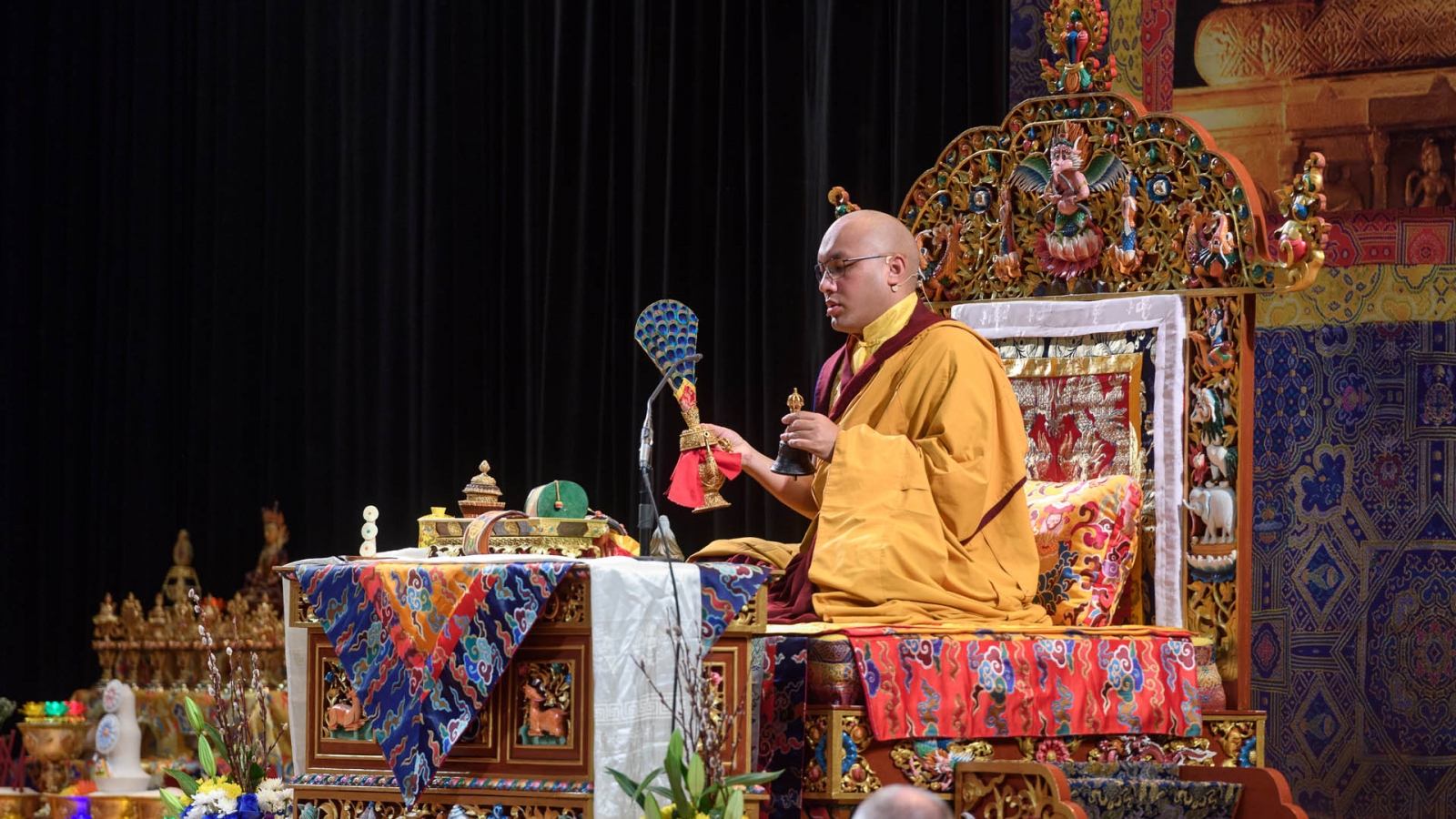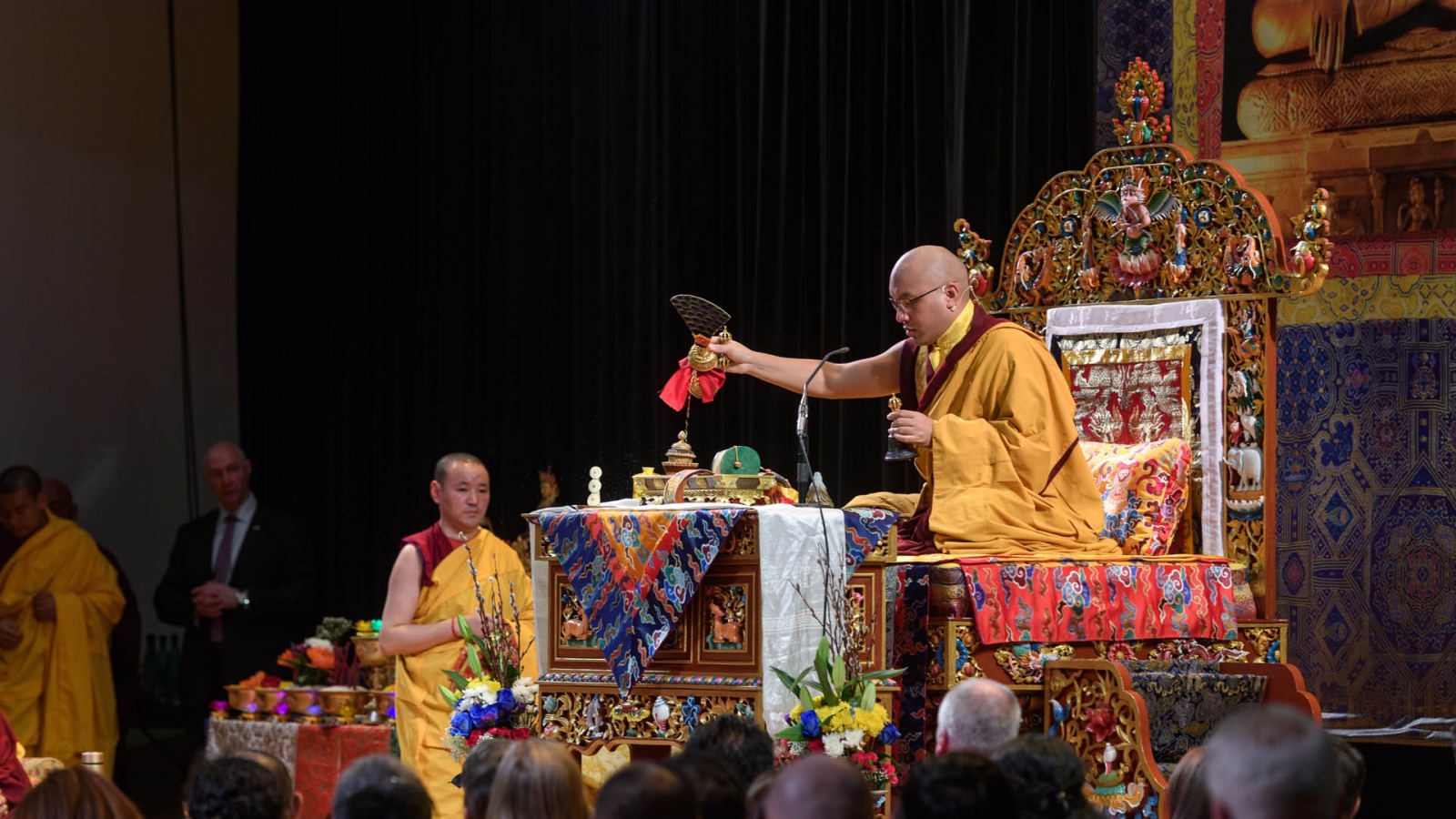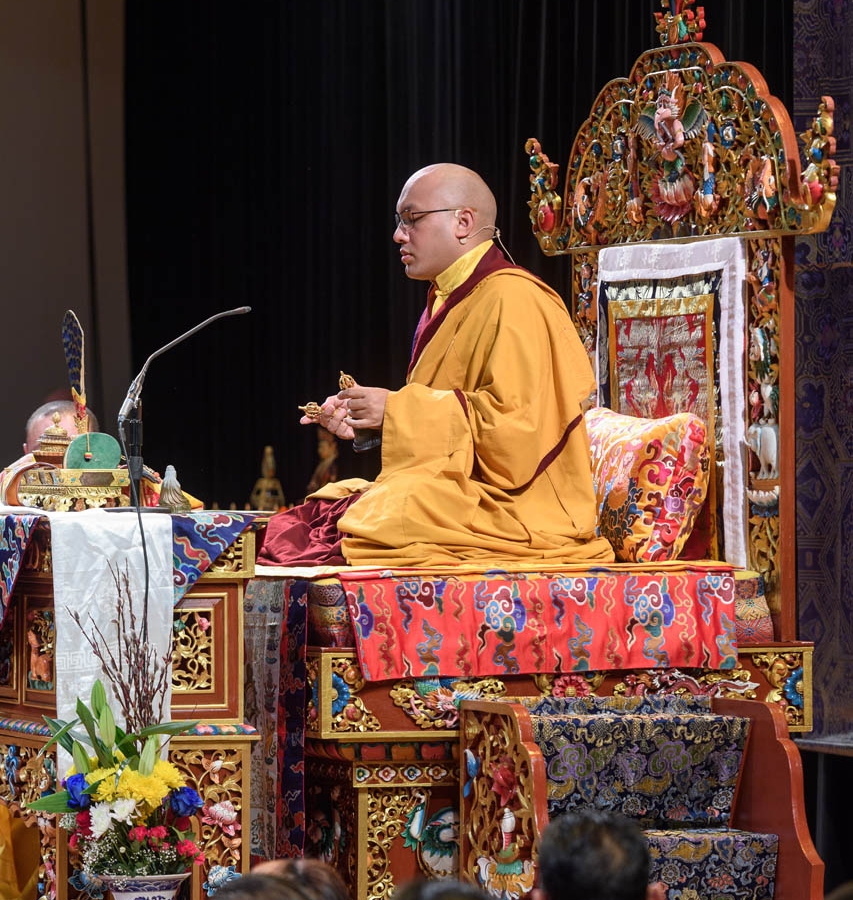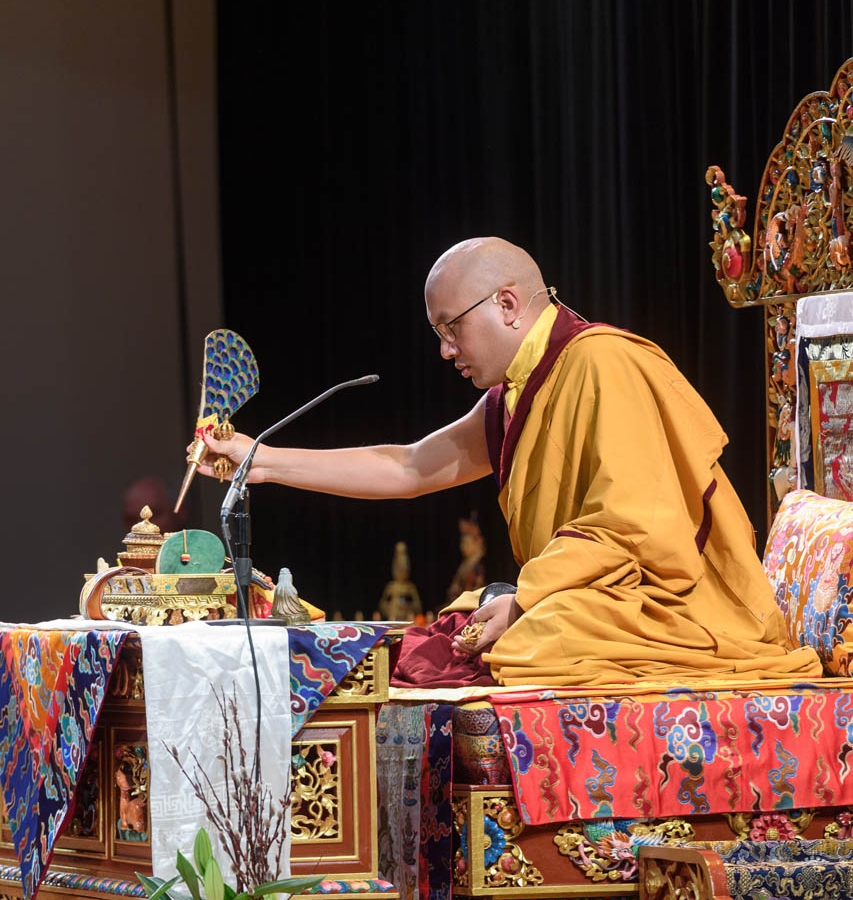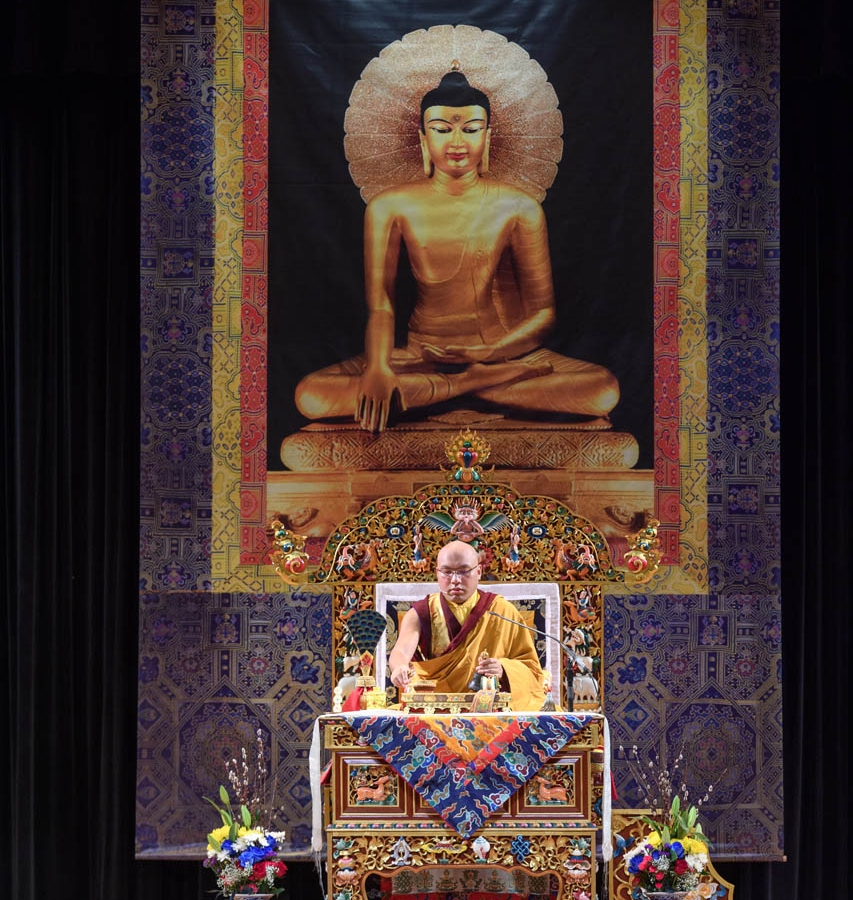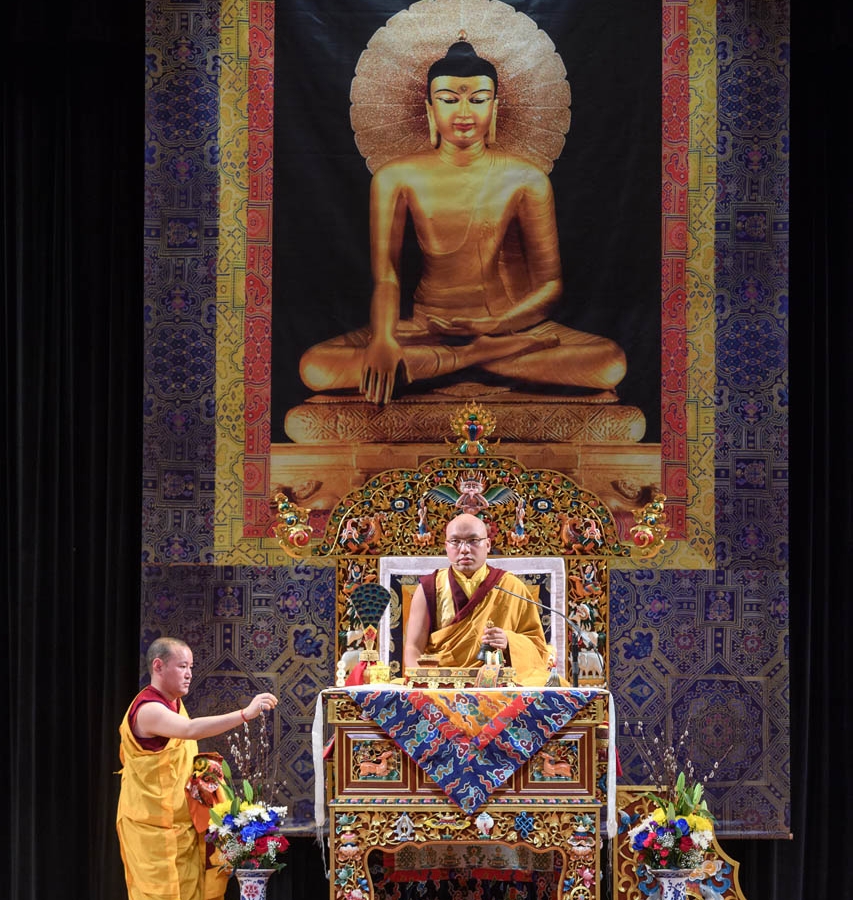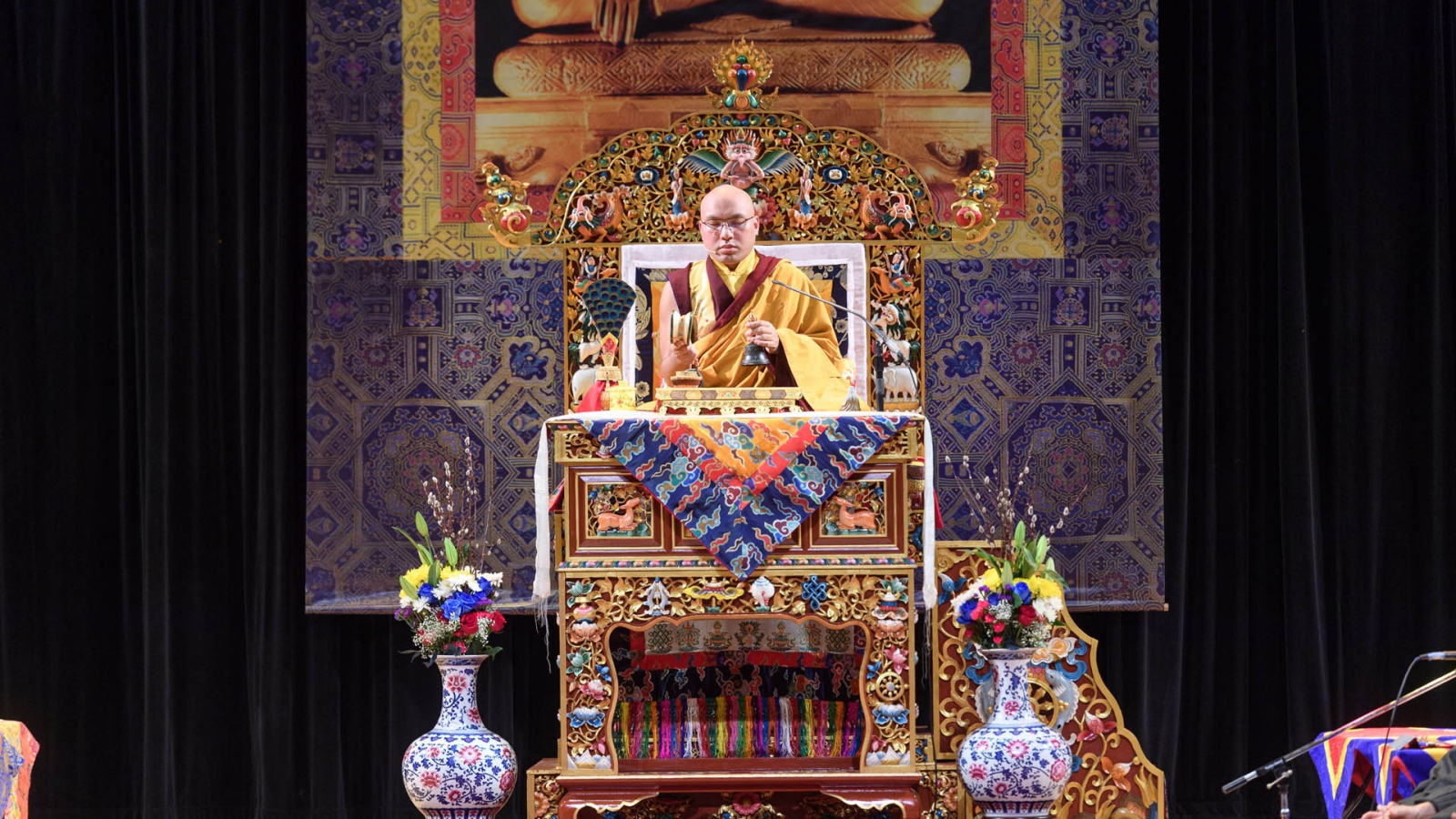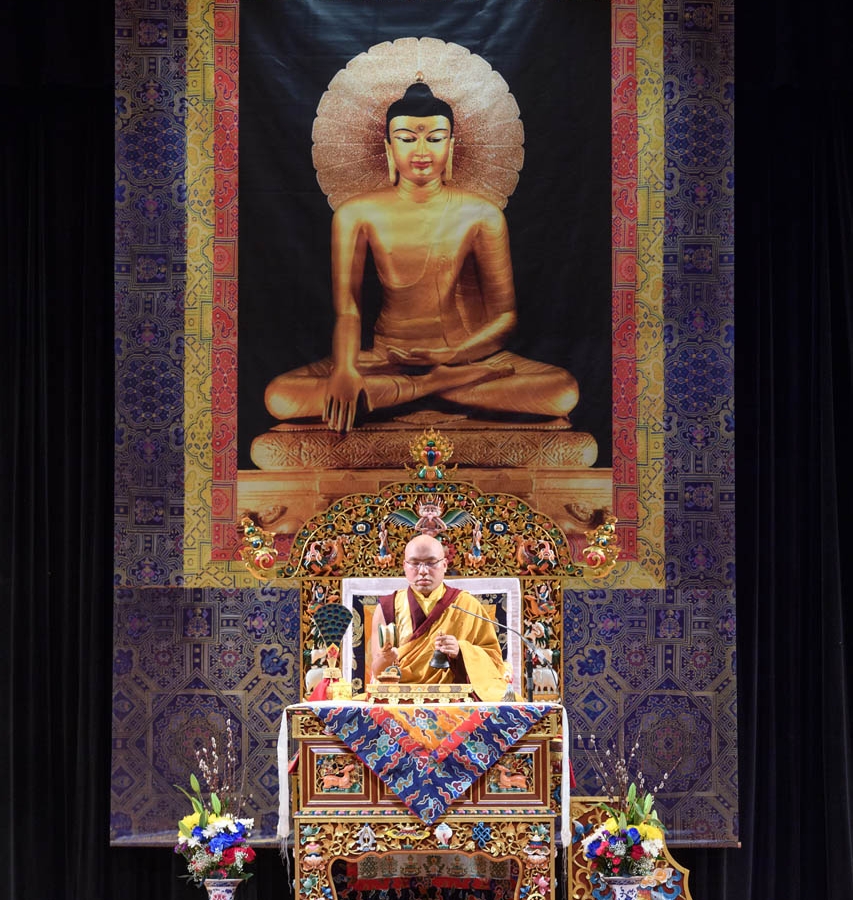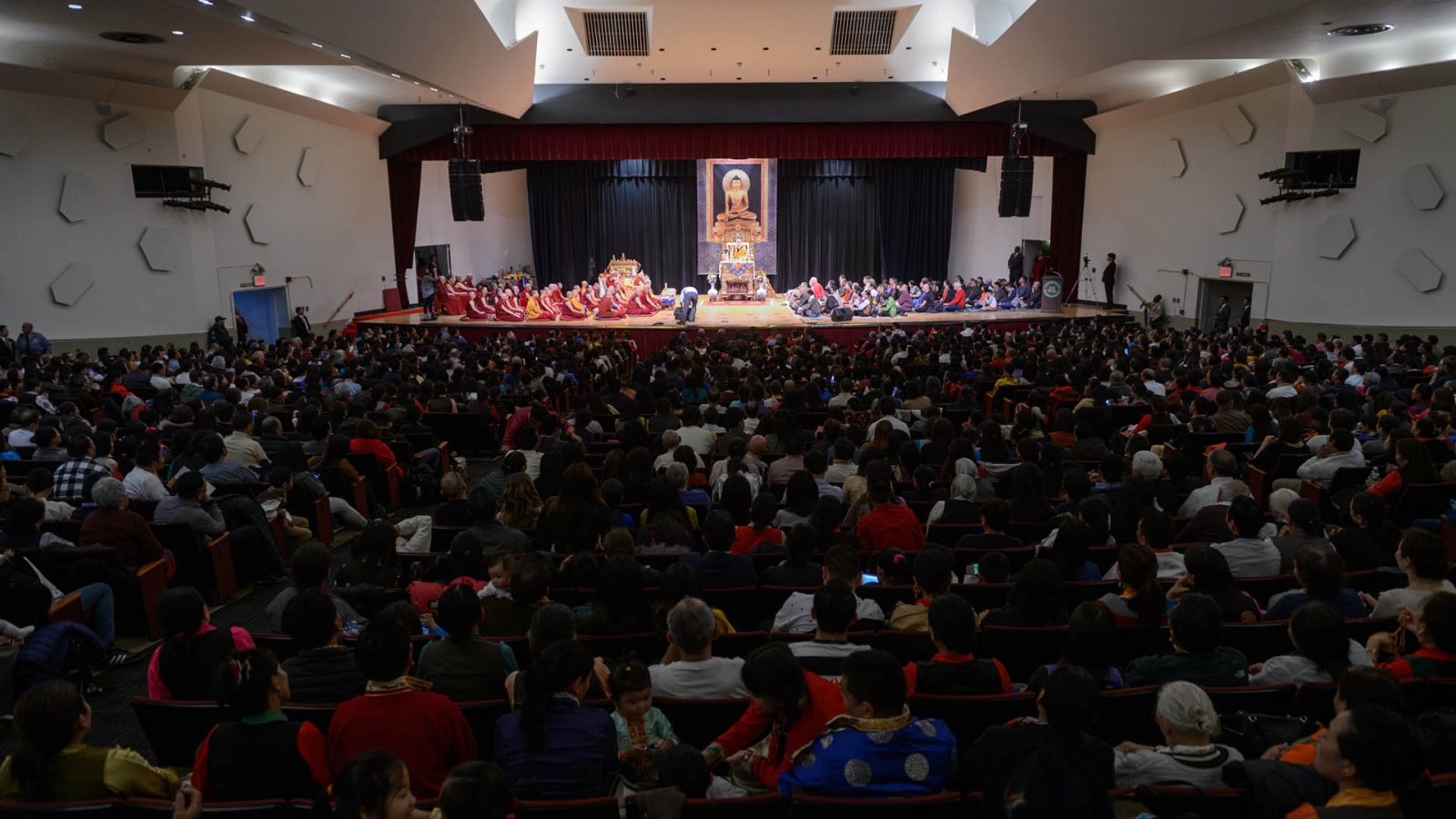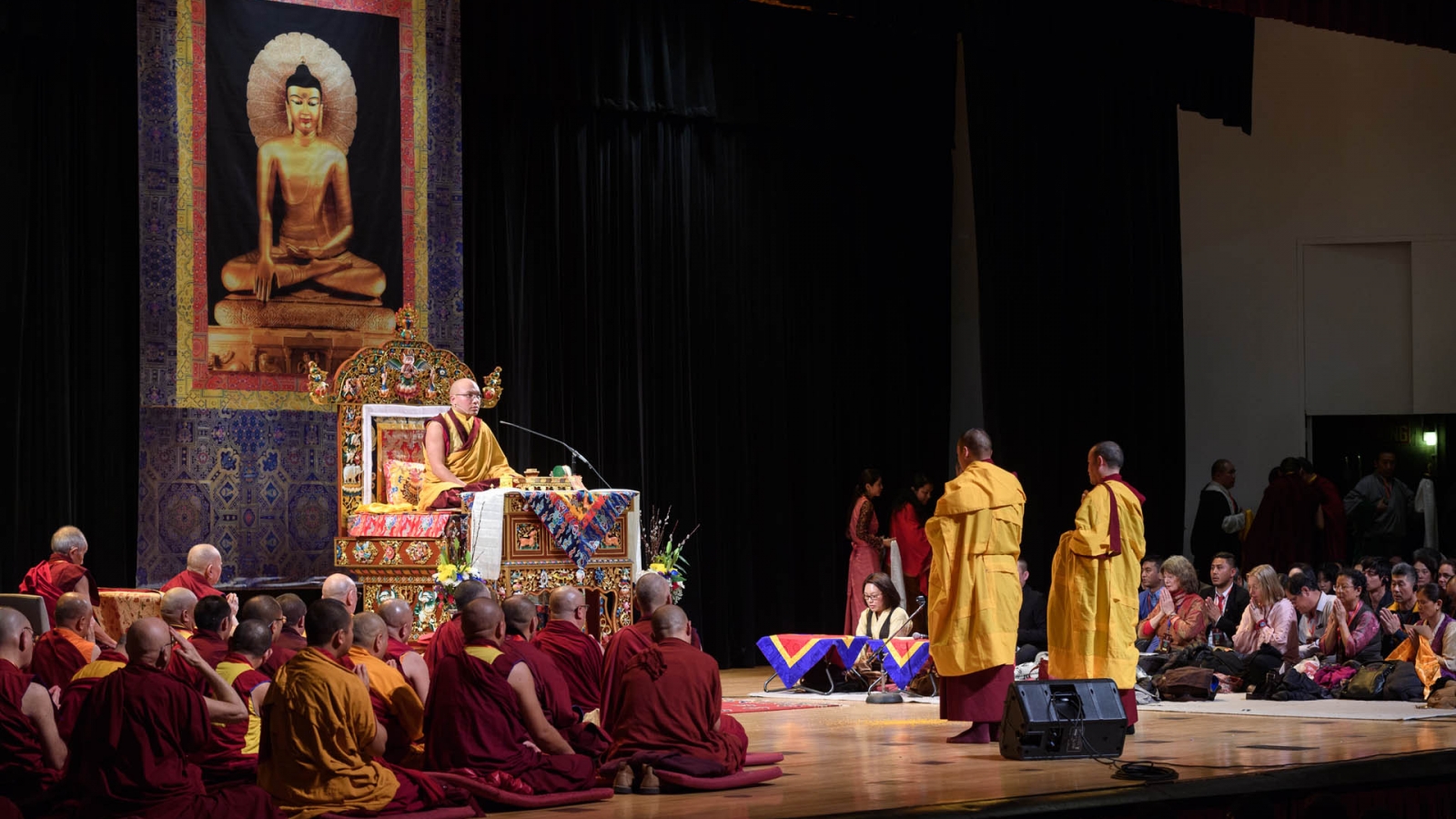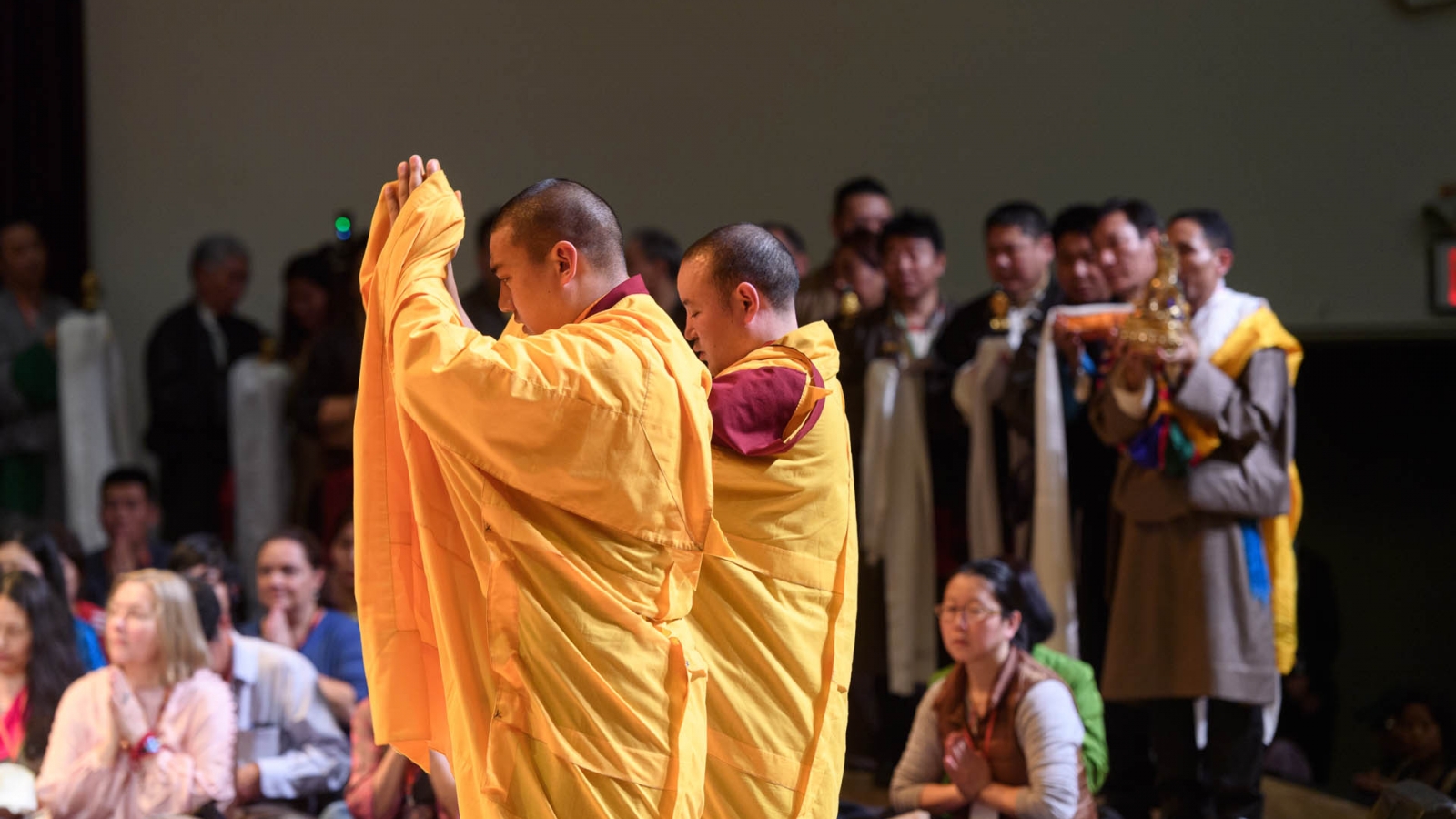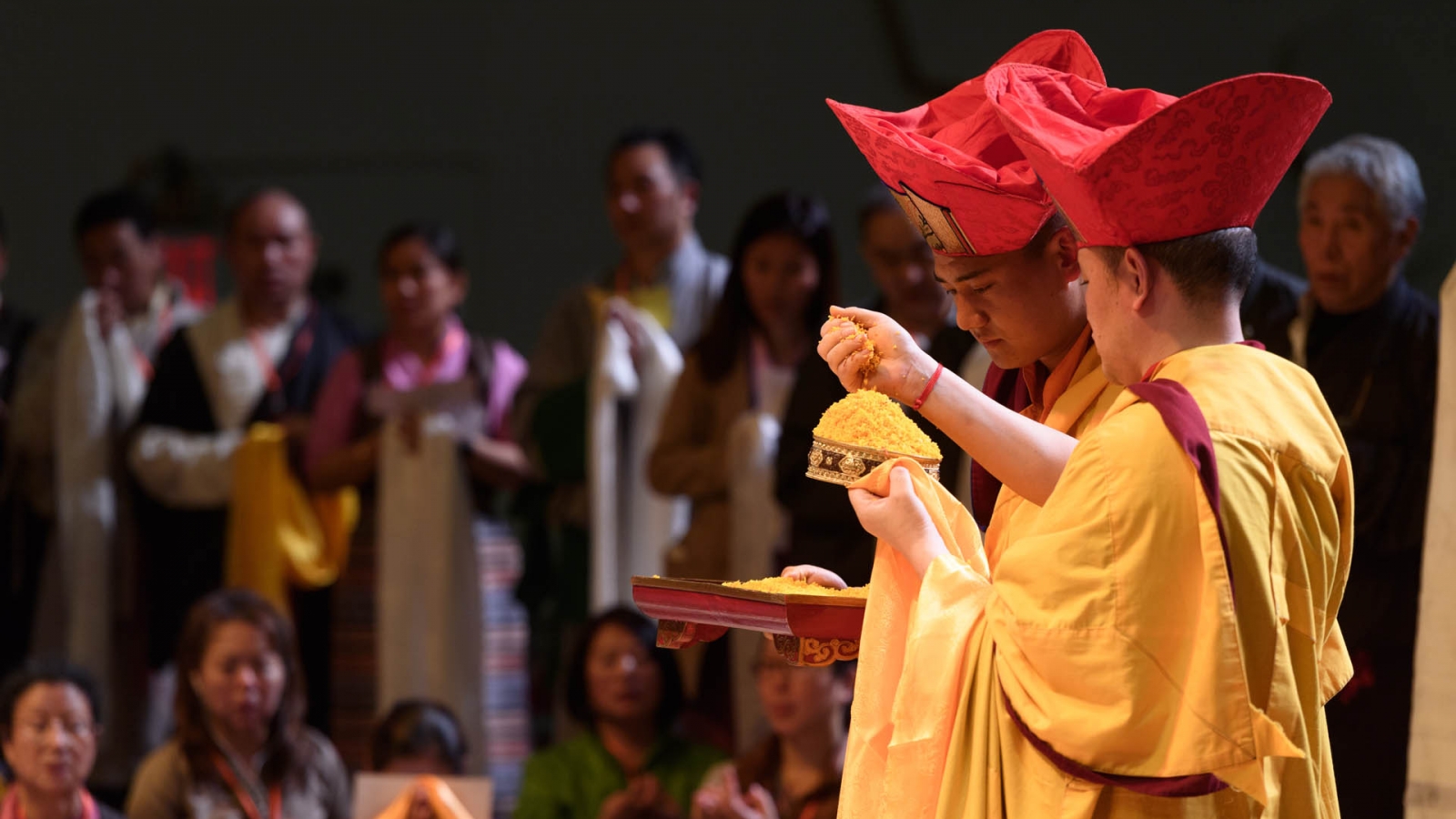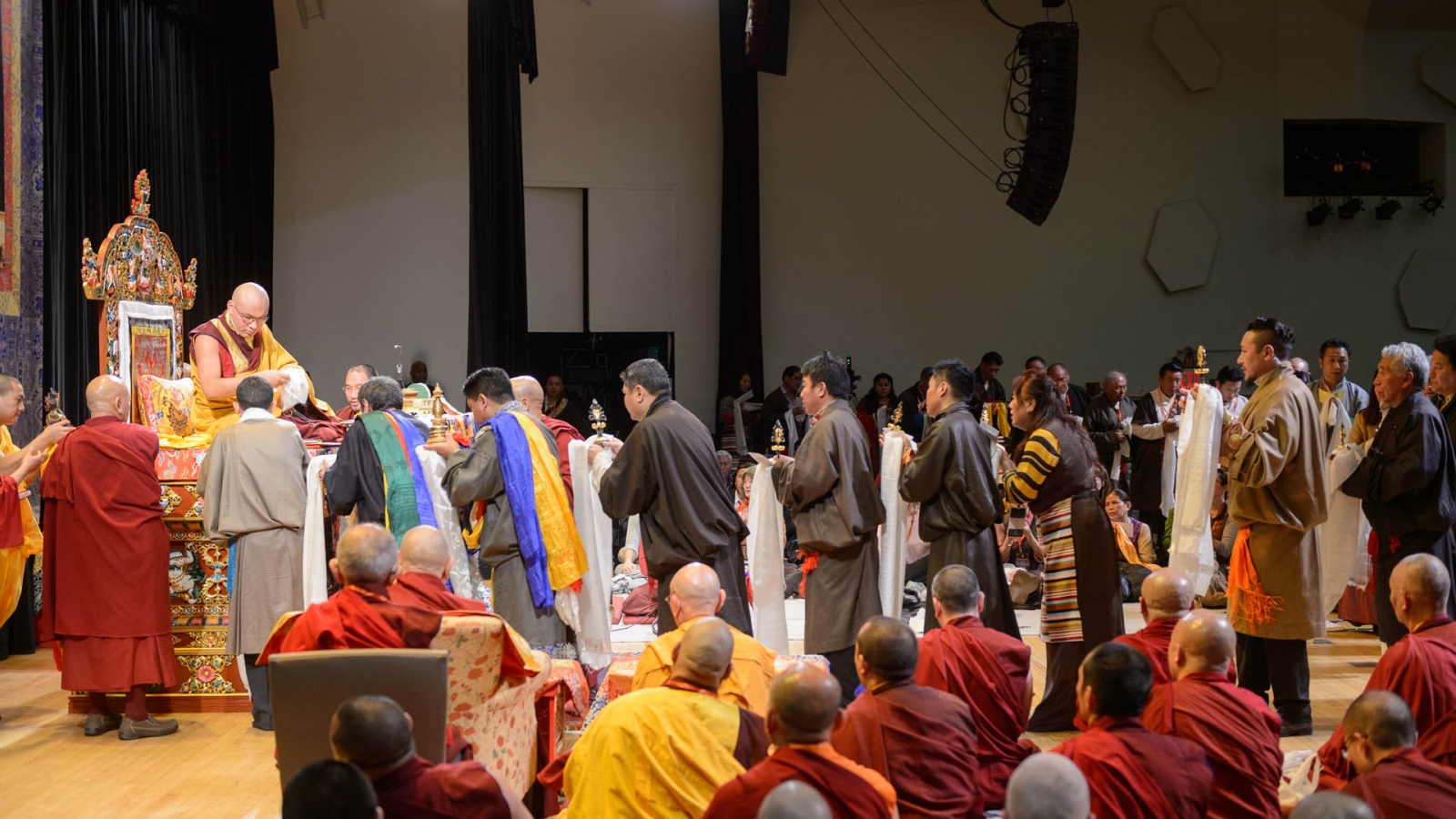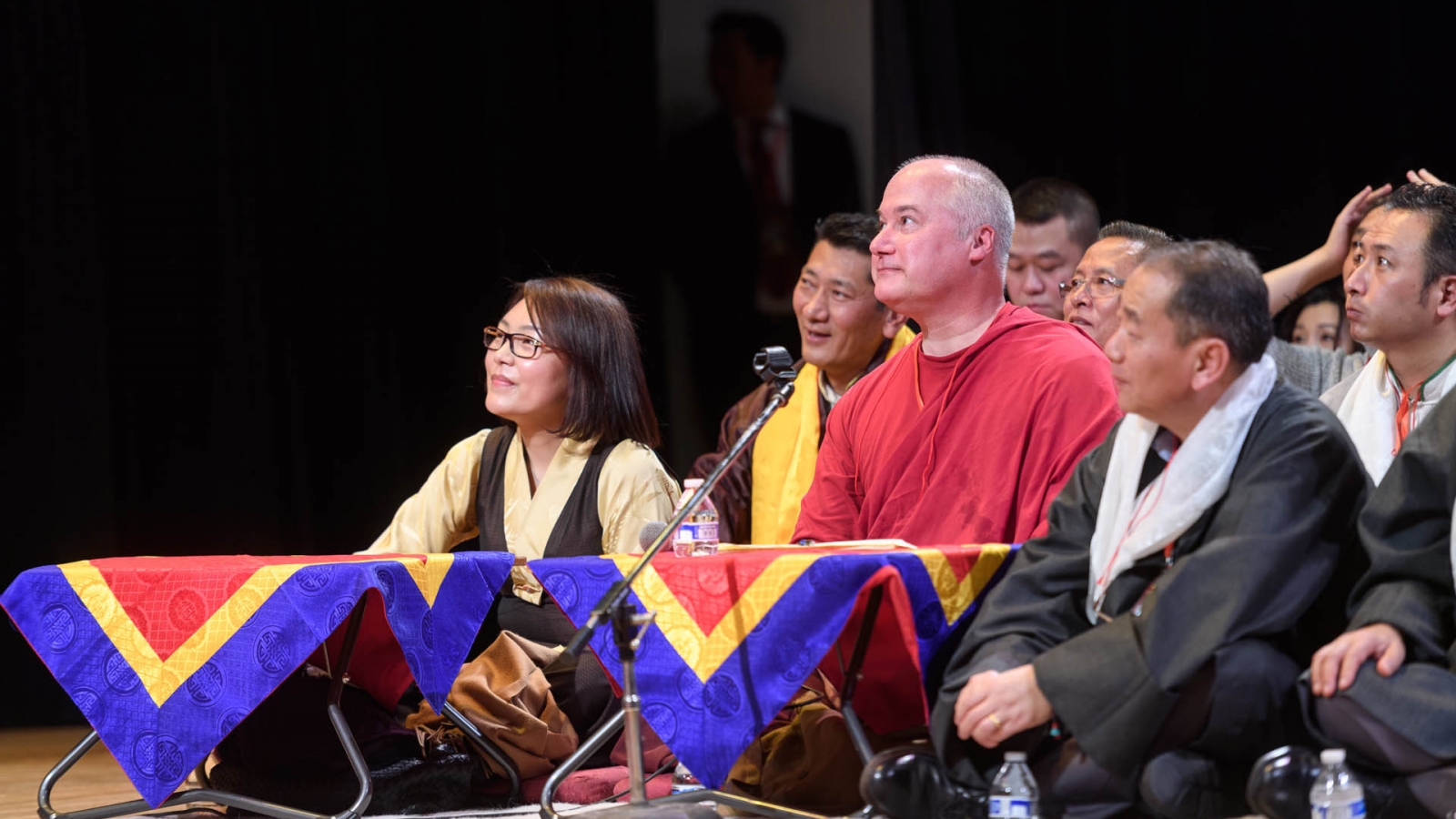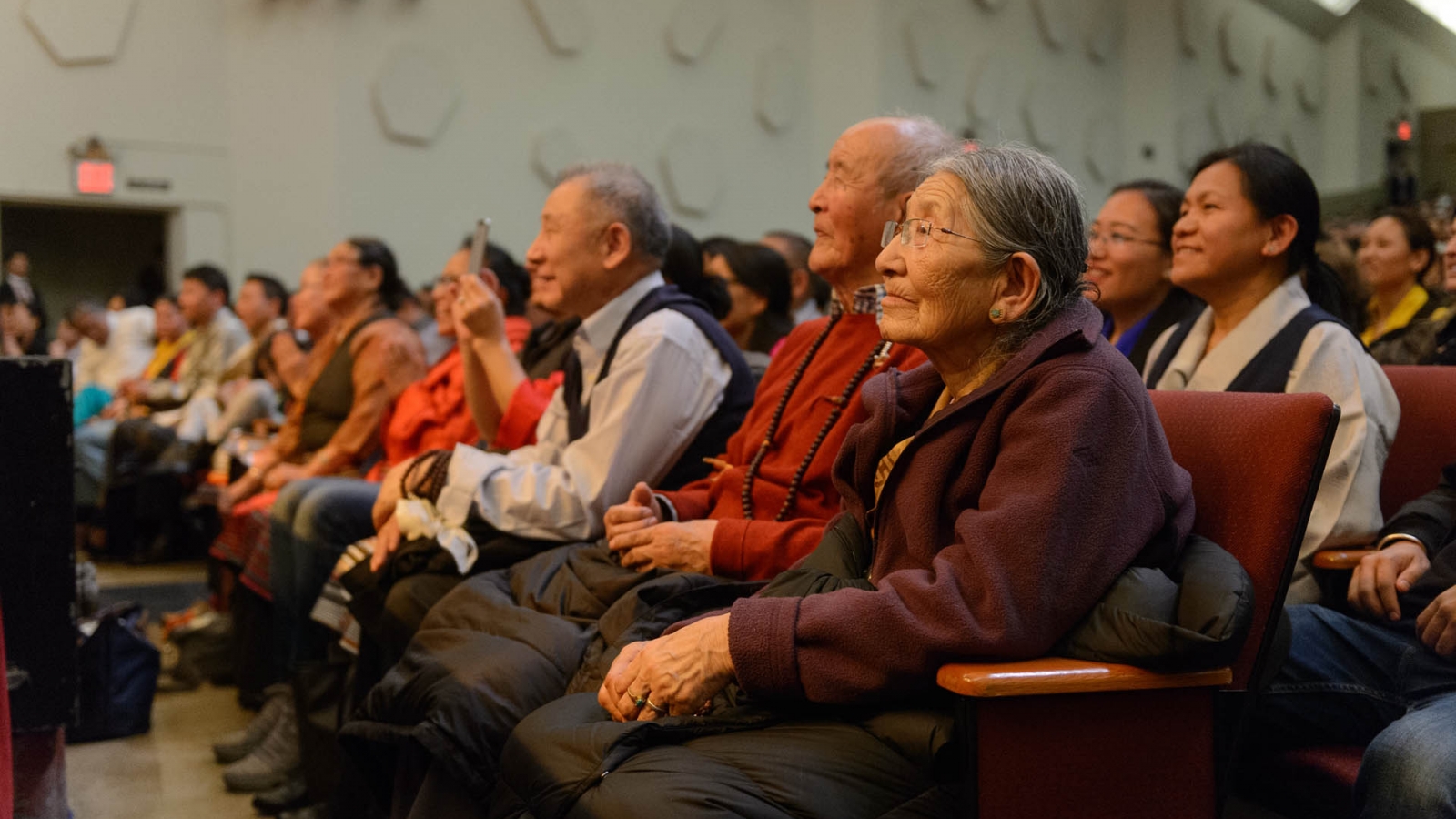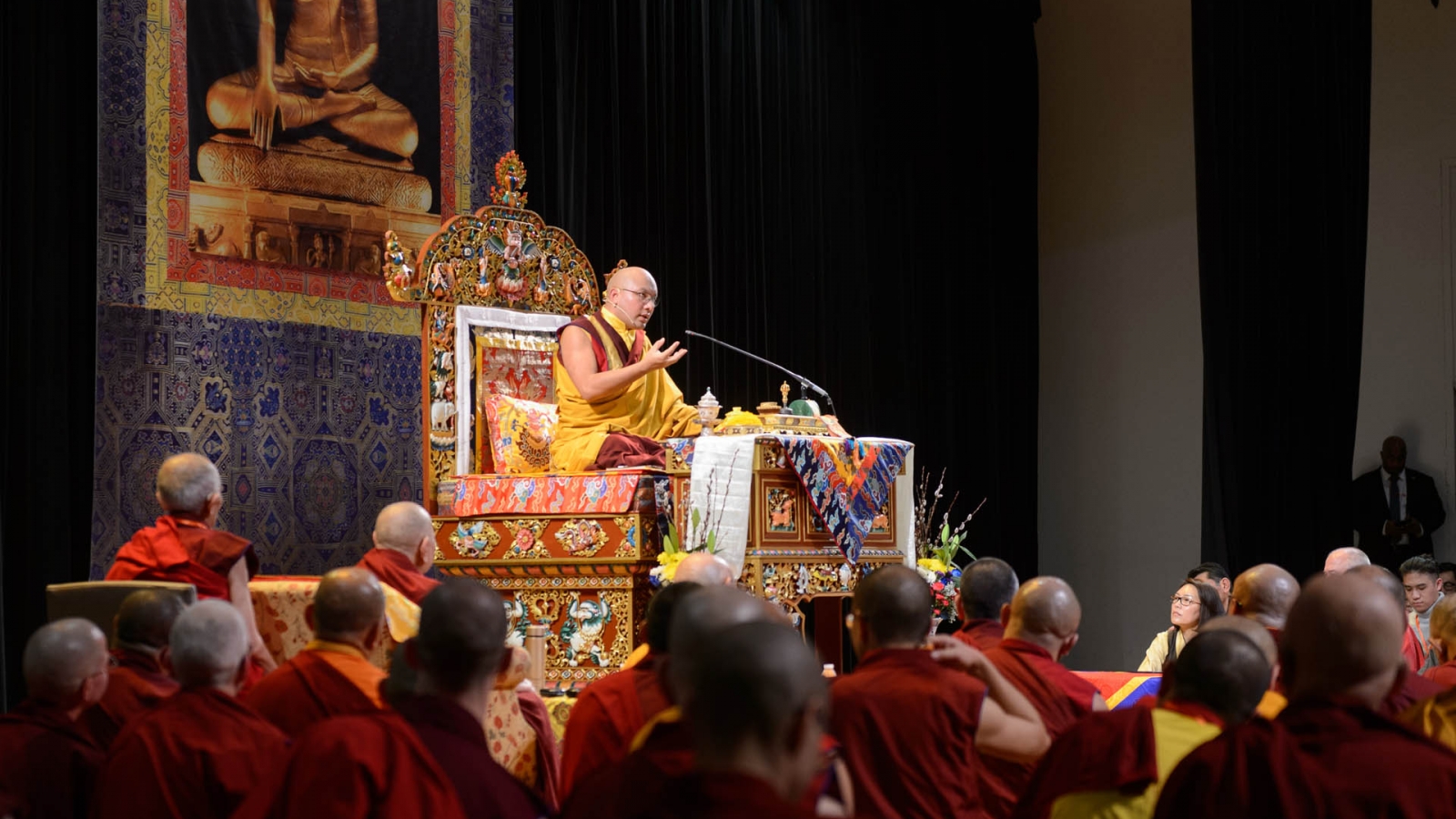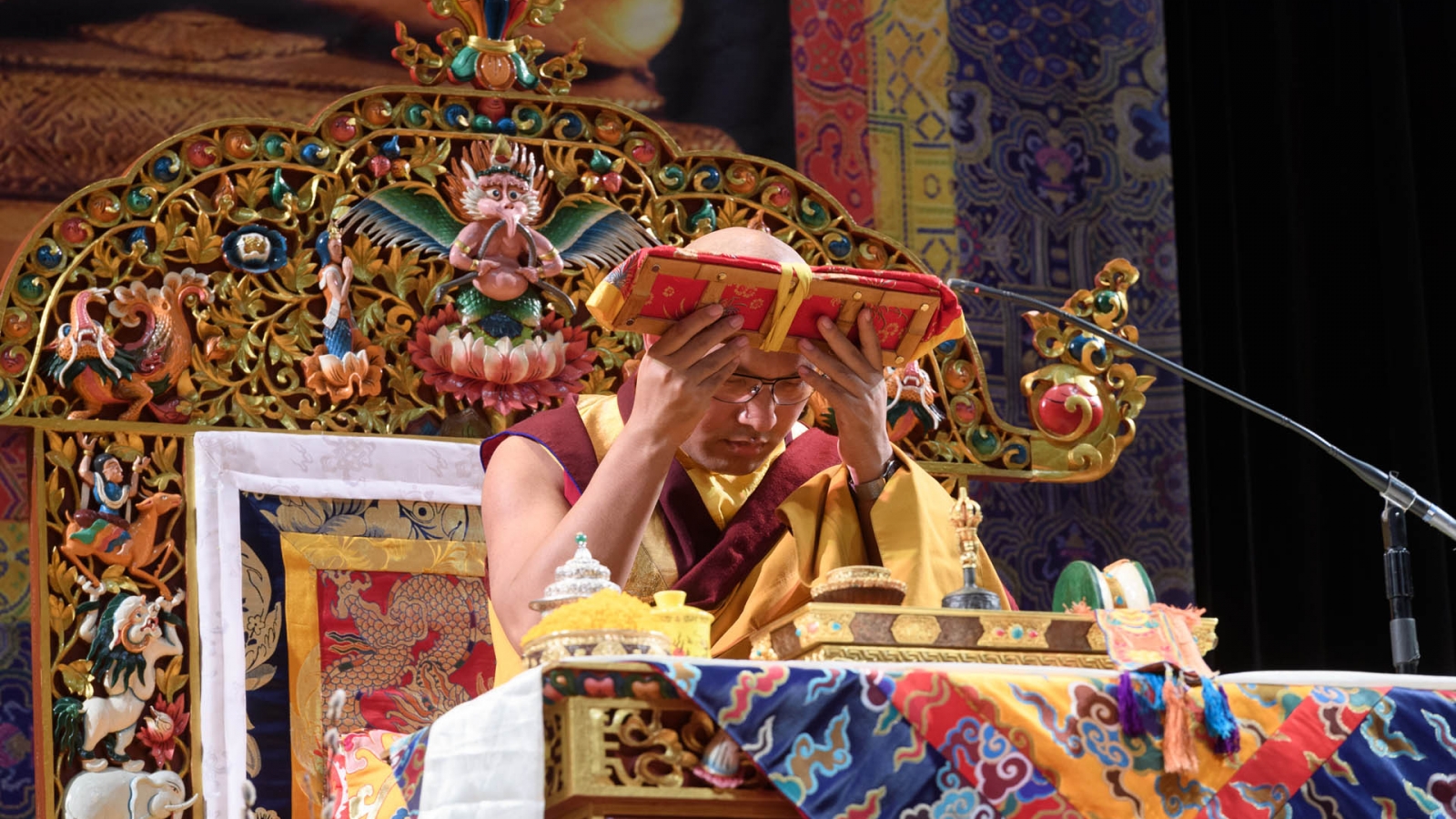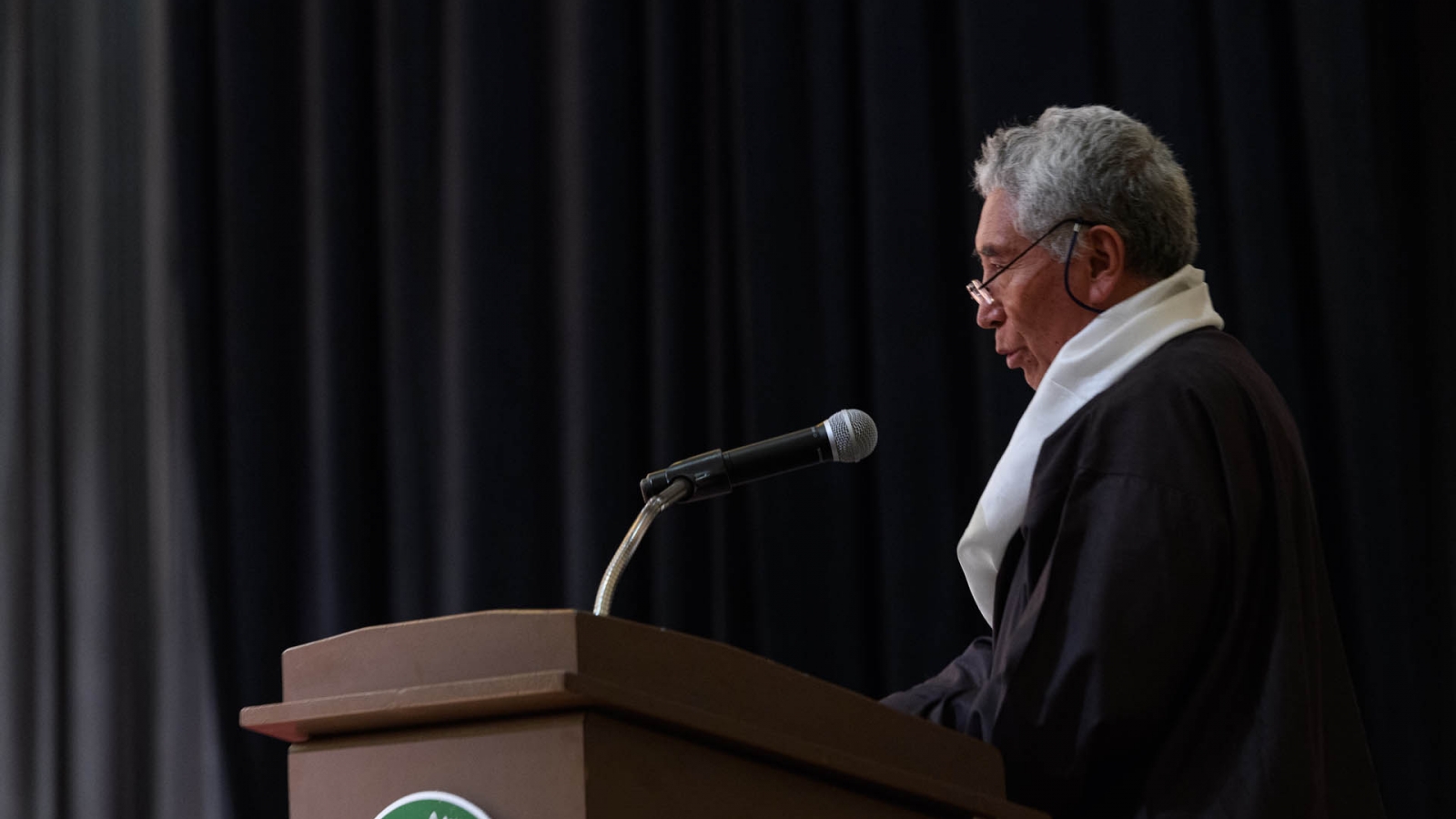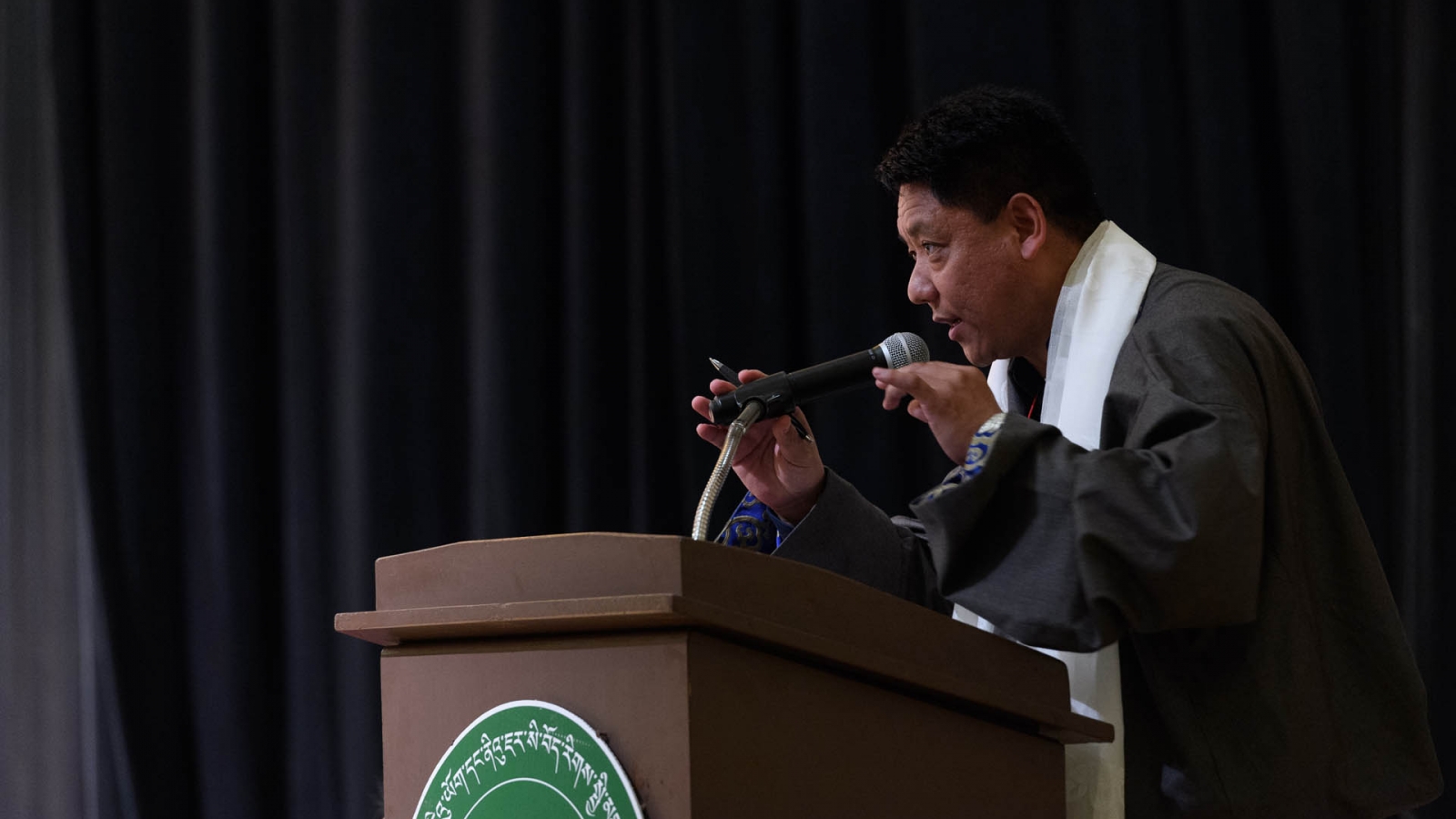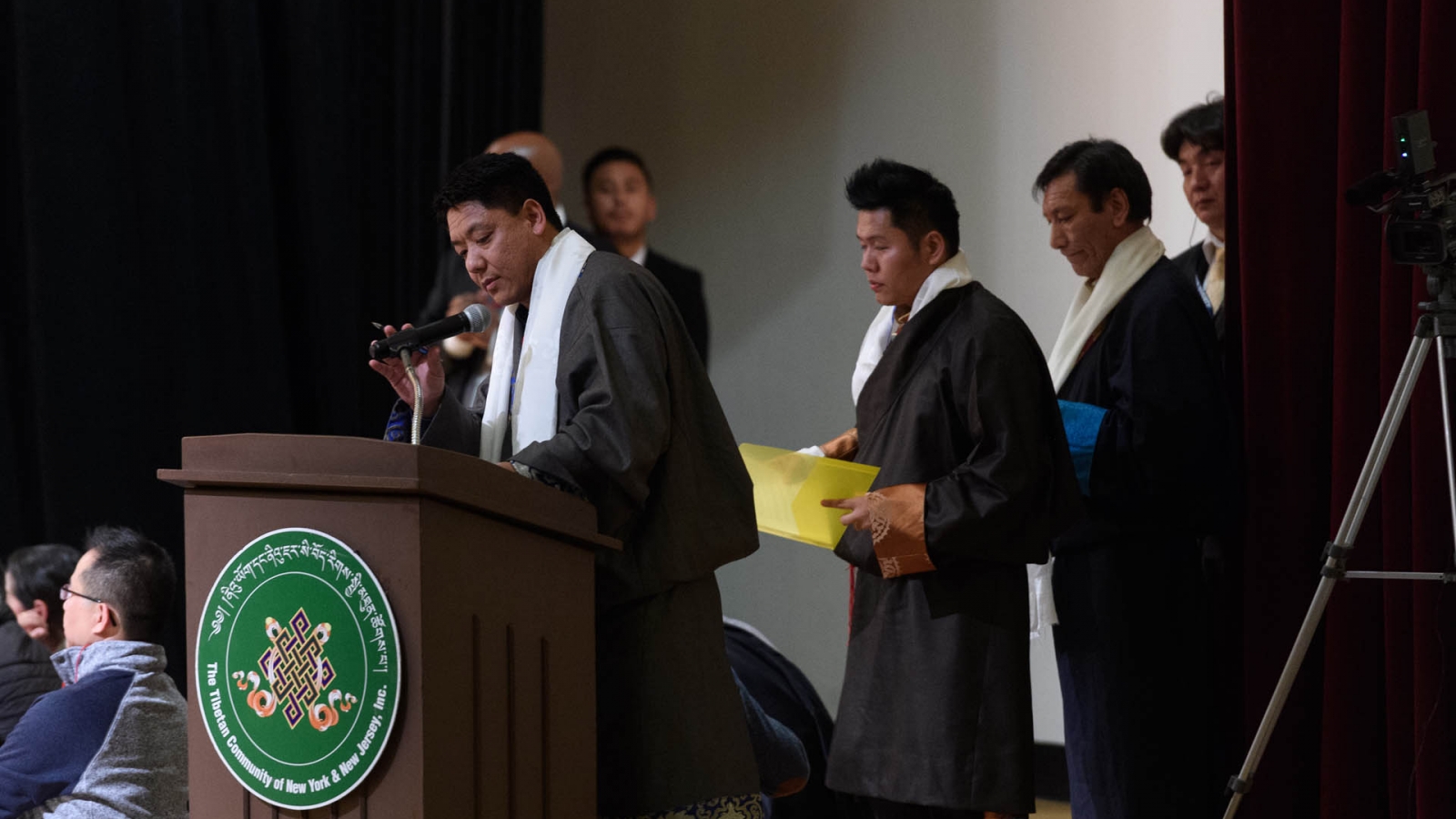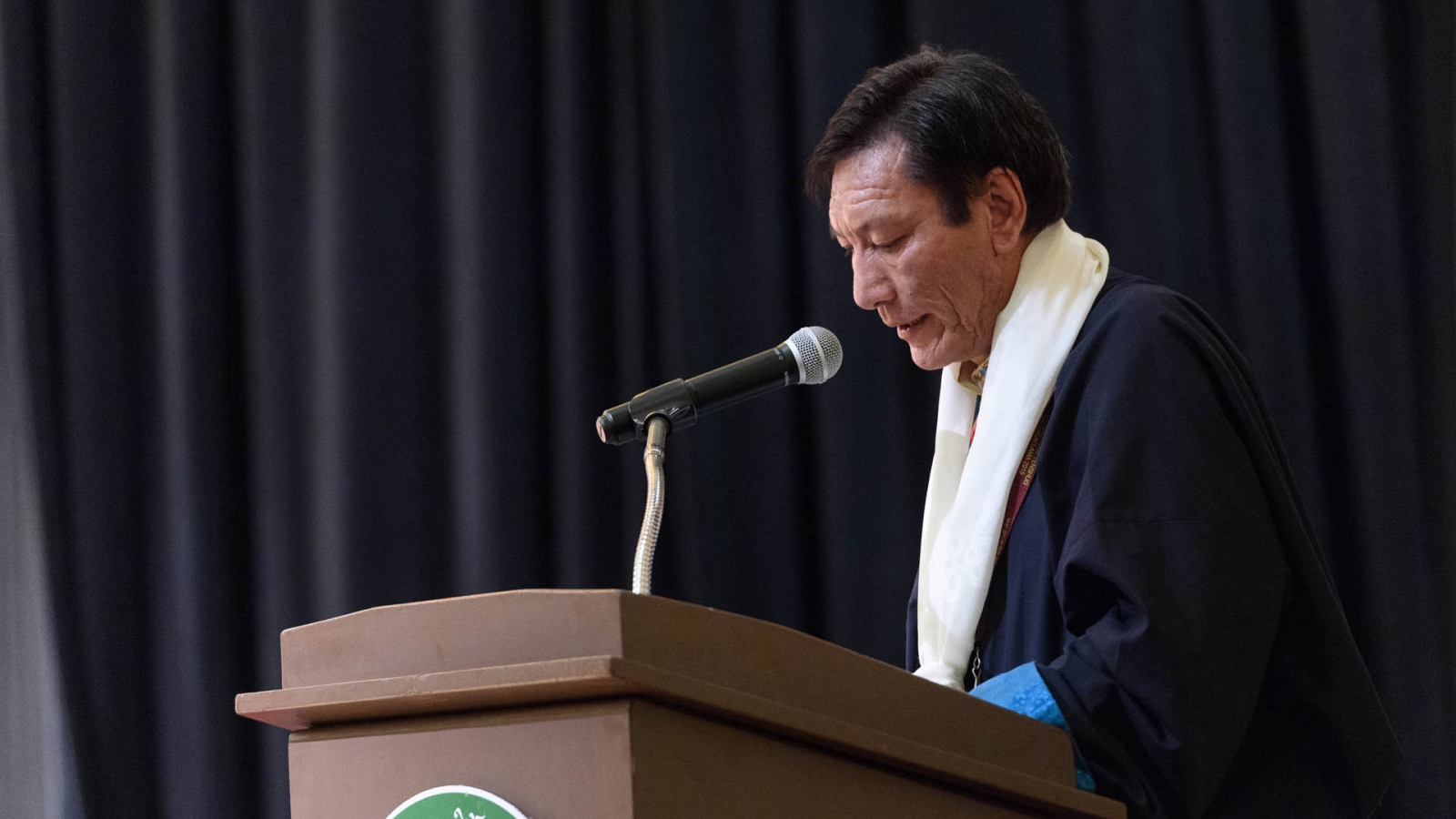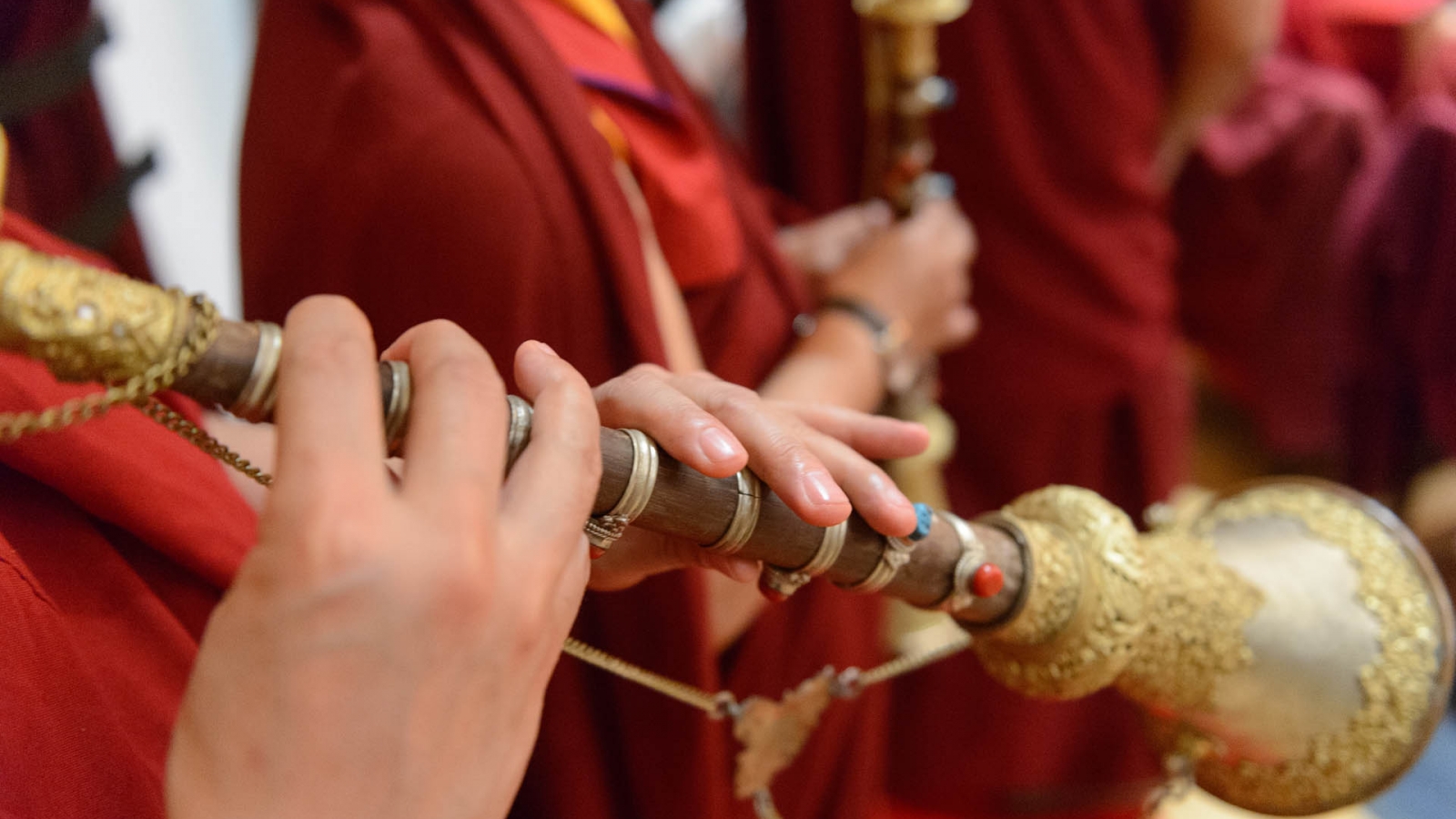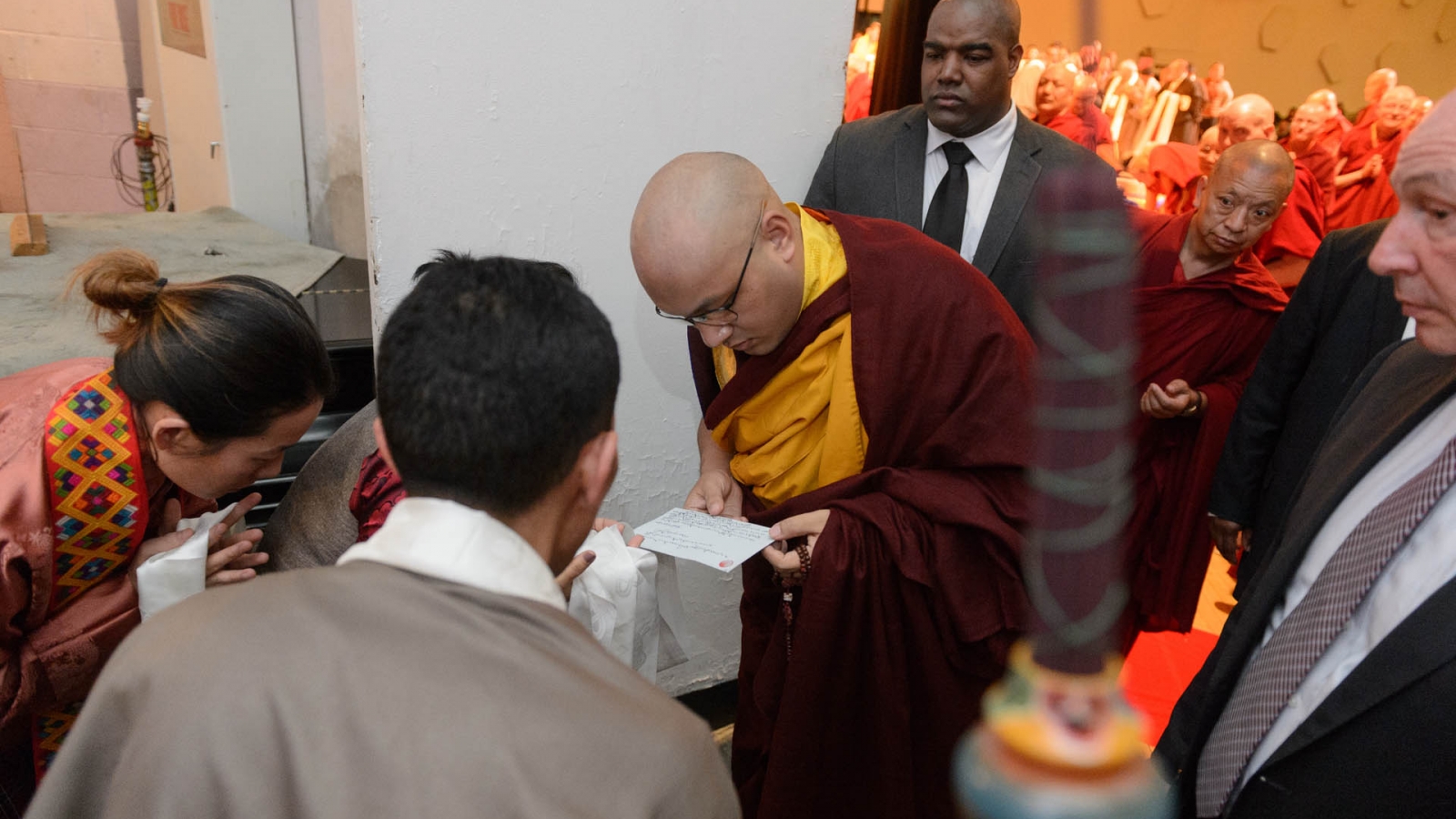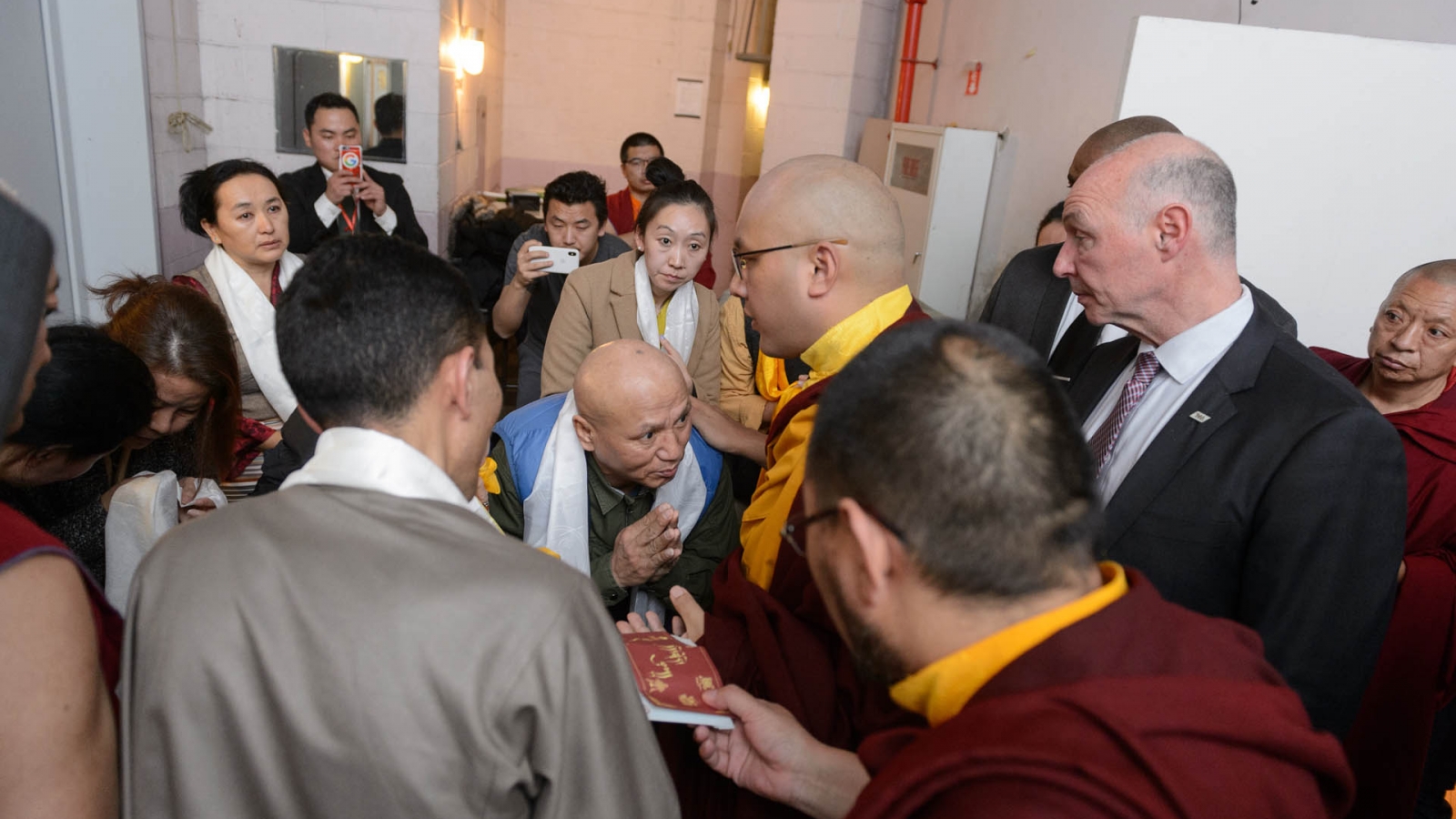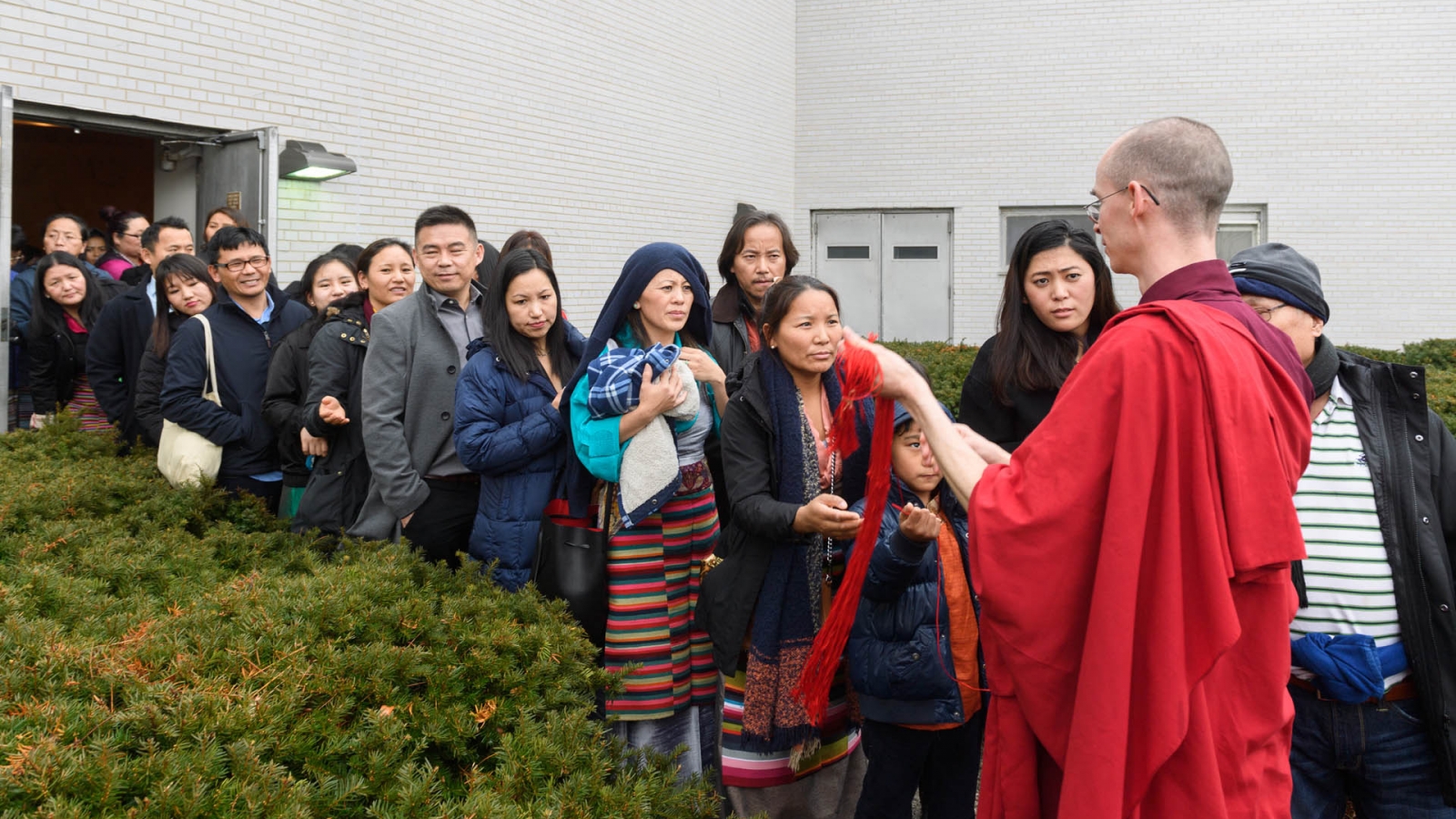Colden Auditorium at Queens College, Flushing, New York — January 28, 2018
For his first public event in several months, the Karmapa generously bestowed a longevity empowerment at the invitation of the Tibetan and Himalayan communities of New York and New Jersey. He gave a joyous crowd of over 2,000 an empowerment composed by the great siddha Thangtong Gyalpo, who himself is reputed to have lived some 120 years. His life was a rich one, filled with composing texts, building his famous chain-link bridges, initiating Tibetan opera (Lha mo), and founding the Shangpa Kagyu lineage through the instructions of the famous female teacher Niguma.
Throughout the ceremony, a beautiful jade statue of Thangtong Gyalpo sat next to the Karmapa’s text on a tall table in front of his throne. Behind him rose a tall, framed in brocade image of the Buddha statue inside the Mahabodhi Temple in Bodh Gaya where the Karmapa has often prayed.
After the organizers, led by Norbu Tsering, President of the Tibetan Community of New York and New Jersey, gave thanks to His Holiness, he began the empowerment, reading the text as he performed the ritual. It stated that the purpose of receiving this empowerment was to bring limitless numbers of living beings to the level of Amitayus’ realization and also explained that Thangtong Gyalpo was especially blessed by Guru Rinpoche.
After the preliminaries, the Karmapa stopped to give a short talk. First, he welcomed everyone and explained that since he had stayed in the US for a while, he had had the chance to form a Dharma connection with people here, which had resulted in the request for this empowerment. Speaking of the New Year, he mentioned that according to the Western calendar, we are in the New Year of 2018, yet from a Tibetan perspective, the New Year has yet to arrive. He continued, “The specific reason for giving a longevity empowerment at the New Year, and in general, is so that your life will be meaningful and you can bring forth the essential meaning of your precious human birth. It is also for your long life and freedom from illness.”
After finishing the empowerment, the Karmapa gave a brief teaching on impermanence.
“In the Buddhist tradition,” he explained, “the coming of the New Year is a sign of impermanence—the fact that nothing remains the same, but shifts and changes. So when we come to the New Year, we can take it as a reminder of impermanence and also as an opportunity to change. Whatever might have happened in the past, we do not need to remain stuck there. We can always take a step forward and find new hope and courage.”
The Karmapa continued, “We can take the opportunity provided by this New Year to understand that time and circumstance do not tarry but move on, and this means that no matter when or where we might be, we can always find another chance. And we should take advantage of this new opening to bring about positive change within ourselves. It will benefit our practice of Dharma and also the way we live our lives.
“Sometimes, we have the hope that the mere passage of time will deliver positive changes, so we sit and wait for them. But time itself is changing moment to moment and so are things, such as our bodies. We cannot remain passive and just wait for time to shift our life around. We need to look into ourselves and find the changes we want to see. And then we are the ones who must initiate these changes and take responsibility to transform ourselves. What is it mainly that needs to change? Our way of thinking and our motivation. If we can change these two, we will create a big shift in our lives.”
Concluding his talk that was translated into English, the Karmapa began his advice for the Tibetans in a lighter vein saying, “I want to say a few words. We Tibetans say ‘a few words,’ but then we talk for a really long time, for hours.”
The Karmapa then spoke for about 40 minutes in Tibetan. He began with good wishes for the upcoming Tibetan New Year, aspiring that people accomplish their aims and find a new, essential meaning in their lives. He reminded the Tibetans how fortunate they were to have His Holiness the Dalai Lama as their leader. There are more refugees in the world than just the Tibetans, he noted, and some are poorer, but no other group is so fortunate as to have a guide like the Dalai Lama and that should give the Tibetans courage and happiness. A society is made up of many individuals with different viewpoints and preferences, so there is a need for a universal leader like him who can bring everyone together.
For these reasons, the Karmapa stated, it is important to follow the Dalai Lama’s guidance carefully, for both the leader and the followers have to be excellent. Similar to lamas and their disciples, if only the leader is excellent and the followers are not, things will not go well. He gave the example that both the vase and the water poured into it need to be clean.
The Karmapa also noted that people place their hope and trust in the Dalai Lama, yet it is very important that they also take responsibility to carry out his advice. He has reached an old age and recognizing how precious he is, Tibetans should act so that he is happy, comfortable, and not disturbed by what is happening in their society.
Finally, the Karmapa turned to the topic of the unity of Tibet, explaining that Tibetans need to go beyond their conditioning, which leads them to consider their particular region as a special and separate area; they must begin to think of Tibet as one, undivided country. The Karmapa spoke of Jamgon Kongtrul Lodro Thaye, one of the leaders of the nonsectarian movement in Tibet’s early nineteenth century. Not only did Jamgon Kongtrul support religious tolerance, he also thought of Tibet as a whole country, which was unusual in his time when there were so many small kingdoms with their different allegiances. Lodro Thaye wrote a very beautiful prayer called, “A Supplication for the Well-Being of Tibet,” which came from his seeing Tibet as a united country. We Tibetans today, the Karmapa counseled, should do the same.
The Karmapa then finished the closing practice for the empowerment while everyone chanted the mantra of compassion, Om Mani Padme Hung. He descended from the throne and stopped in mid-stage to greet an audience of people who were very happy to see him again.


